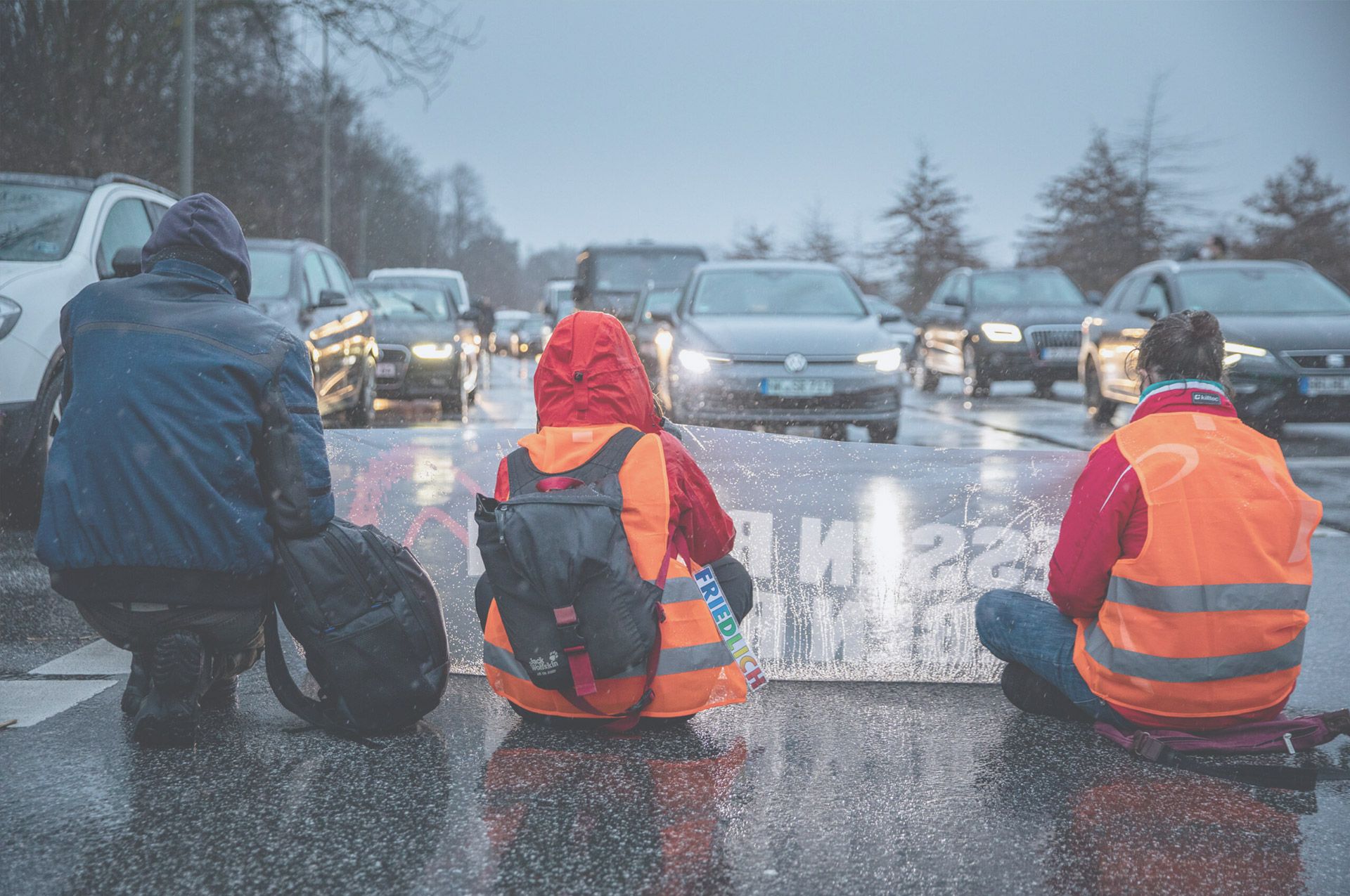Today I released a new podcast episode (subscribe on iTunes if you haven't yet, or wherever you listen to podcasts!). It's an interview I did with Miriam Meyer, a young German climate activist with the group Last Generation.
For much of this year, Miriam has been blocking motorways – and getting arrested for it. Why? To get the German government to act on the group's climate proposals.
The whole discussion is worth listening to. But the most interesting part was when we debated her group's controversial protest tactics. Simply: does stopping people from getting to work help your cause?

Generally I'm in favour of radical action, so long as it makes strategic sense and doesn't hurt anyone. I've written about this several times, most recently in a piece on the brilliant museum protest by Last Generation's Italian group.
But it's useful to test out positions, to try to evolve my views. So I pushed Miriam on these issues. And she gave some thoughtful responses, that we could all learn from.
Here's an edited transcript of our chat.
* * *
Miriam Meyer: Our basic idea is we cannot be ignored. We just don't have the time. We have two to three years to get this climate situation under control. We have to disturb ordinary people.
So we're blocking highways, blocking ordinary people. We're not blocking politicians.
Doing things this way is high-risk. But it gets us a lot of attention. Because all these people have to either be angry at us, or support us. There are no neutral bystanders.
We've been very successful in getting press, and getting politicians to talk about us. Of course, a lot of the discussion is about what we're doing. But it's also about what we're asking for.
Mehran Khalili: A criticism of your protest is that you're blocking regular people from getting to work. Or possibly pregnant women trying to get to the hospital.
You've been lucky so far, that something bad hasn't happened. But this kind of protest could really negatively affect people. How would you react to that?
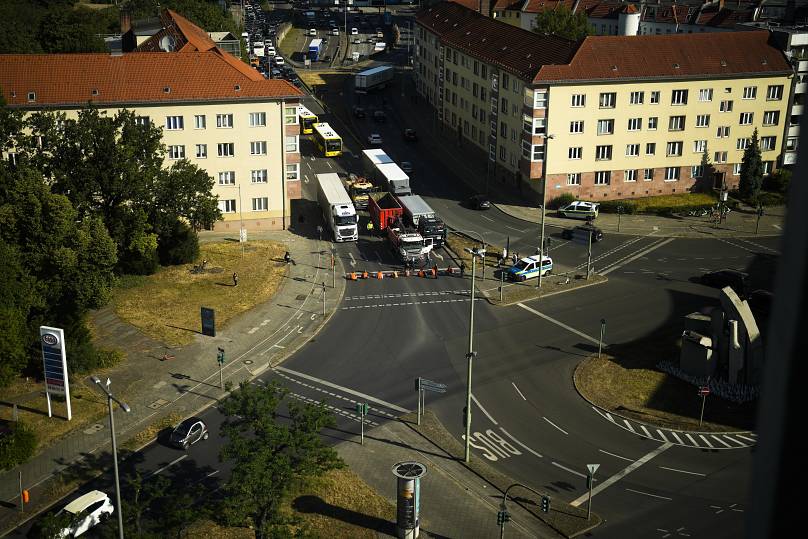
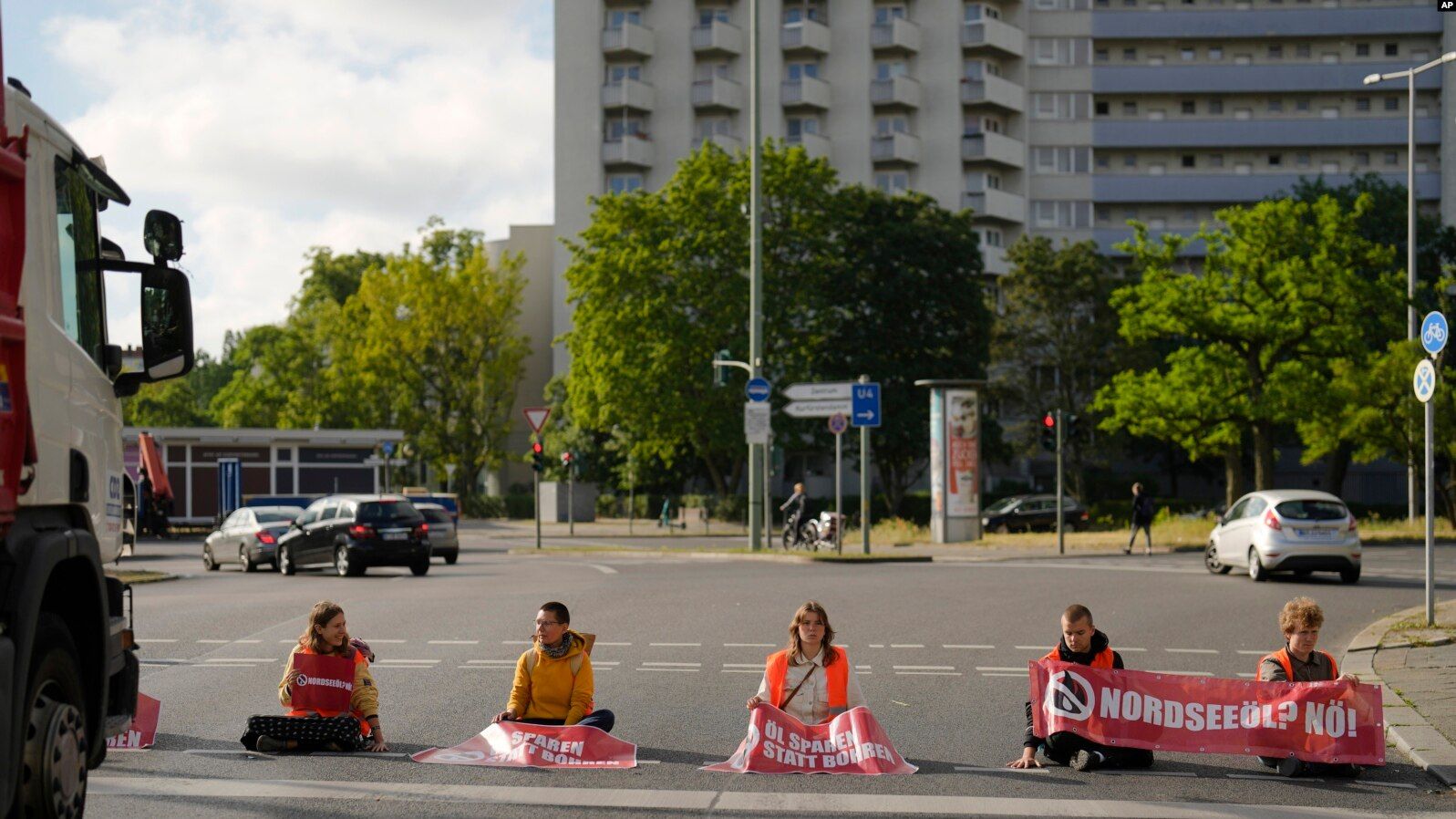
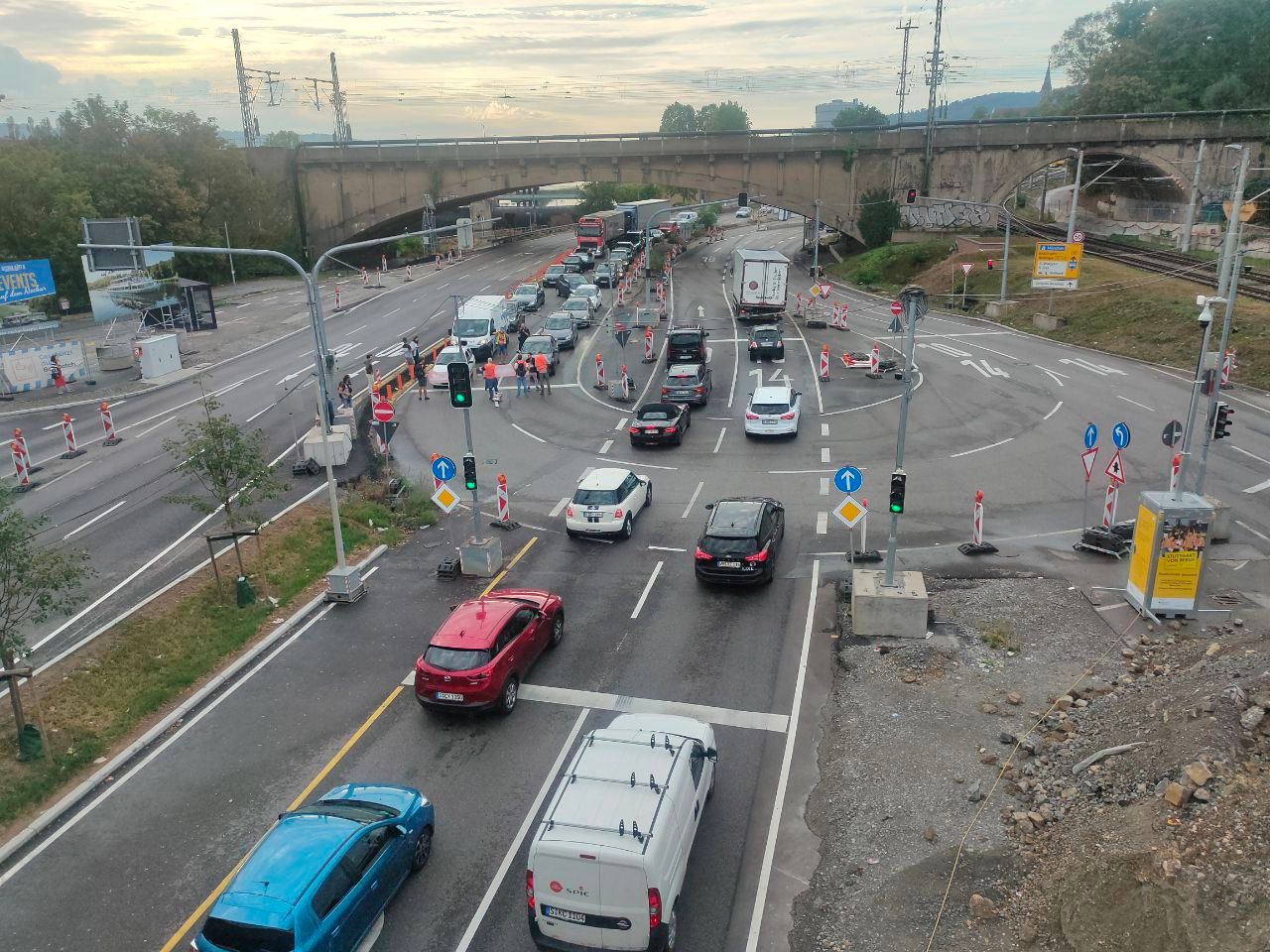
Miriam Meyer: There's always a risk. We're trying to make this as safe as possible. We don't want to endanger anyone. We always have a way for emergencies to get through. Of course, the cars in the traffic jam also have to make way for them, but that's what they should be doing anyway.
If they're angry, I can deal with it better. But if they are desperate, it's really tough.
And if what we're doing is so dangerous, then we should have a system that makes sure there are no traffic jams in Germany. Because we are not the major cause of traffic jams here! We're just adding some more.
For me, it's really hard to sit on the street. It's really hard to tell people 'no', when they want to get through. If they're angry, I can deal with it better. But if they are desperate, it's really tough.
I feel very sorry for every person I'm blocking there. I just don't see any other way. The climate crisis is not going to choose who it will hit. It will hit us all.

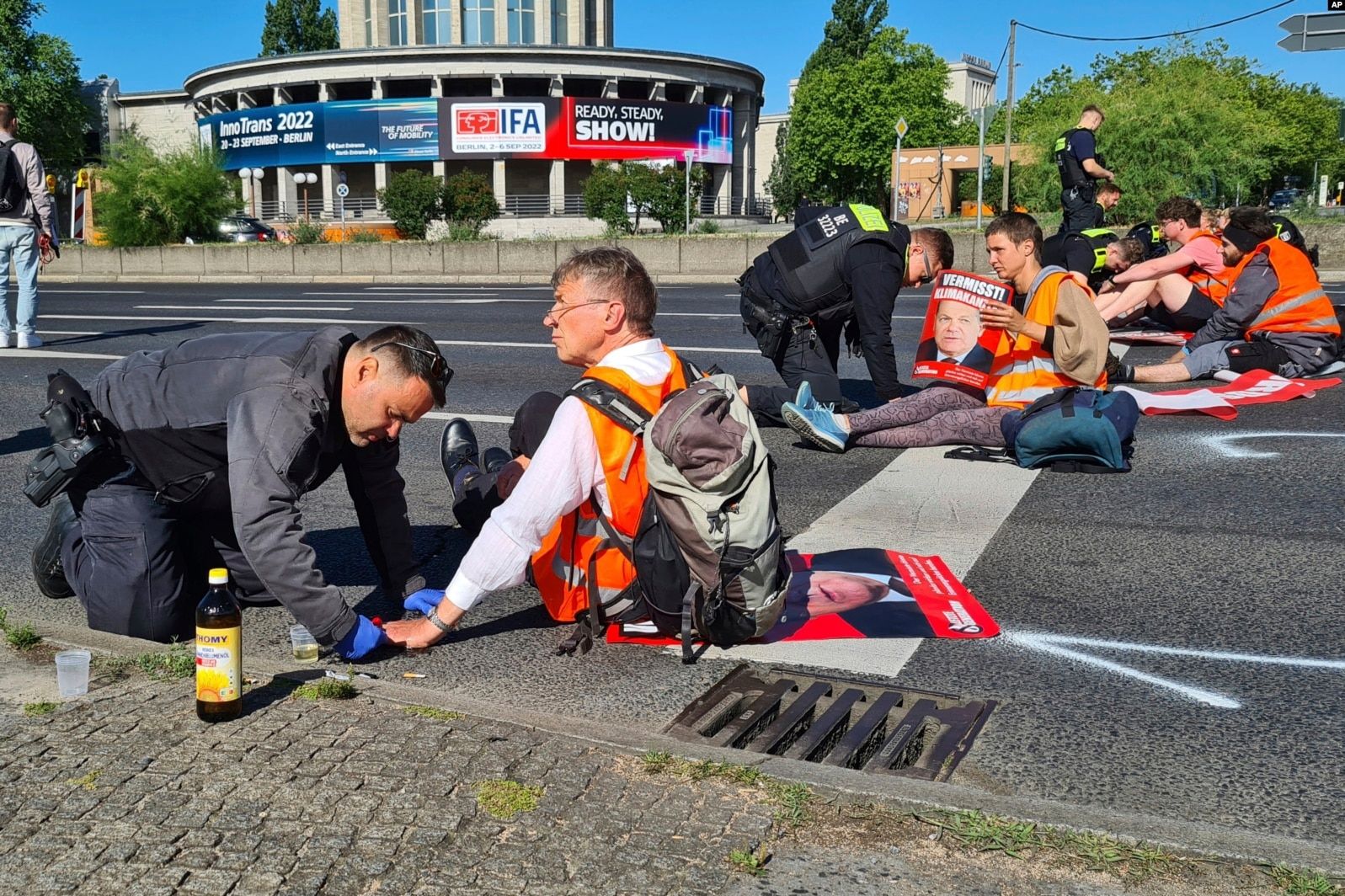


Mehran Khalili: That's fair. But let me take the devil's advocate position. Say someone is trying to get to the hospital. Perhaps in a car, not an ambulance, further back from the front where you guys are. And they're just sitting there, beeping the horn.
What would you say to them?
Miriam Meyer: Just that I'm very sorry.
We're trying everything for that not to happen. And I really hope we won't ever hurt anyone with our protest. I don't see any way I can have the same effect, the same impact, without some risk. Without disturbing random people. I wish we had another.
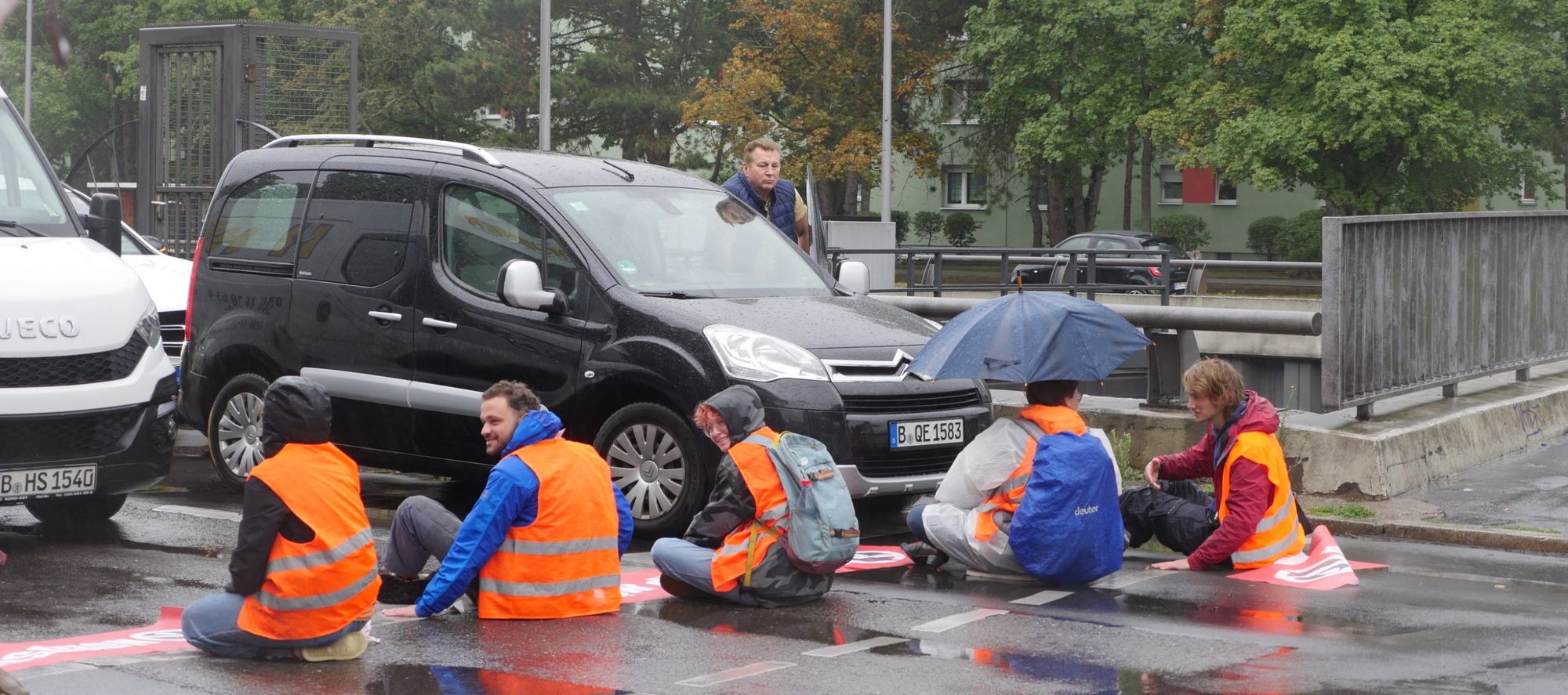
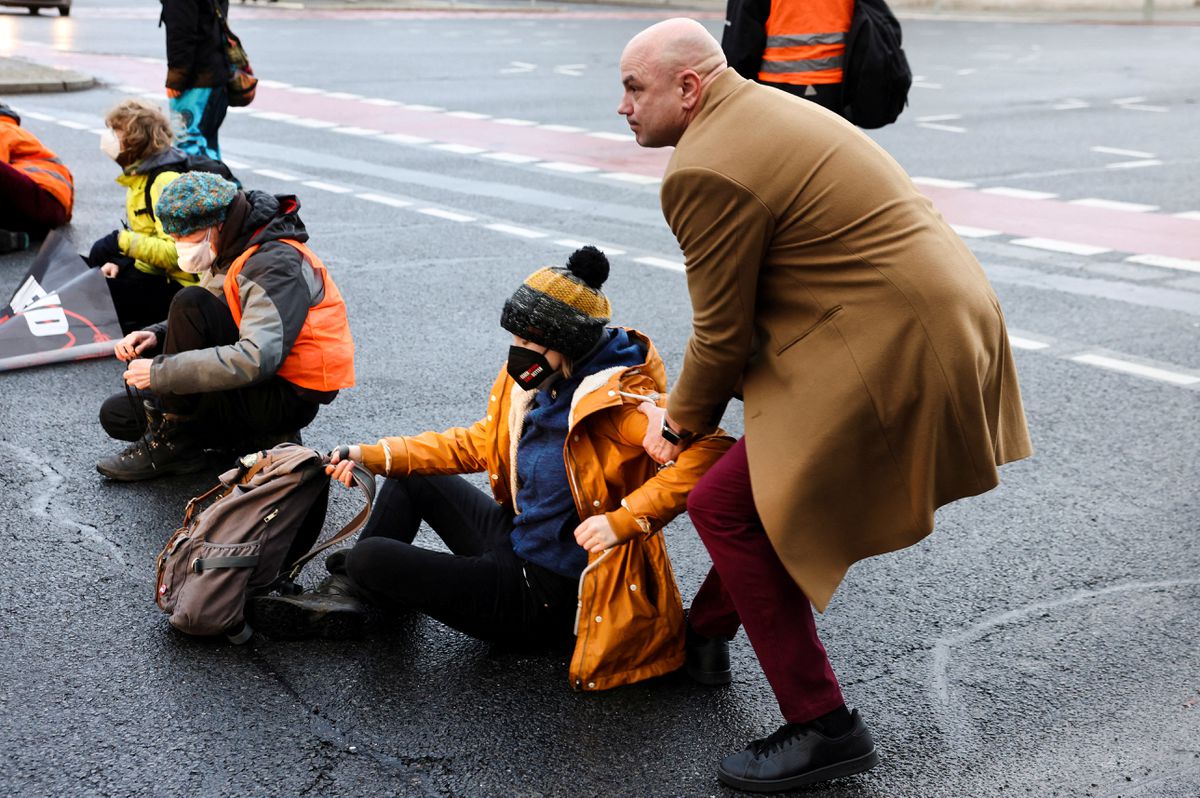
Mehran Khalili: A poll from the UK, from September 2021, measured opinions of the climate group Extinction Rebellion. 49% felt fairly negative or very negative about the group.
Do you believe it's strategic to polarise people against activists like this? Are your actions really going to change hearts and minds with regard to the climate crisis?
In the end, what matters is that they discuss our demands. It doesn't matter if they hate us.
Miriam Meyer: Of course, many people are against our methods. But we can also see that few are against our demands.
What we hear a lot on the streets is "What you're asking for is fine. But not in this way." They hate the way we ask for it, but they don't hate what we want.
Sure, there might be some who say: I don't like these protesters, and just because they want this, now I'm against it. But usually, there's a lot of support for our demands.
And in the end, that's what matters. That people discuss our demands. It doesn't matter if they hate us.
